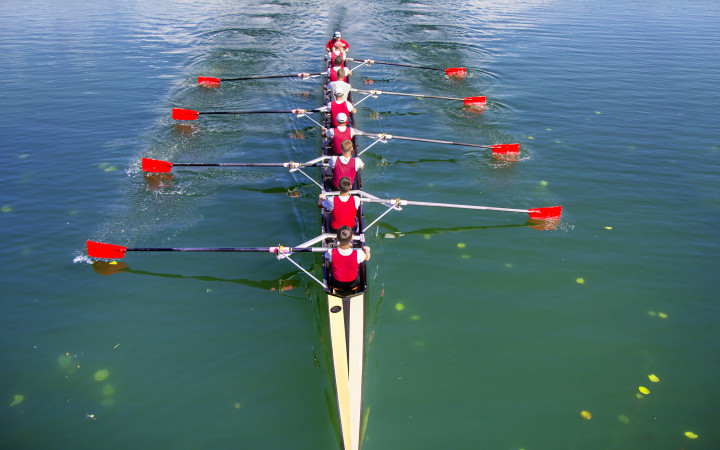Today’s Wonder of the Day was inspired by cory. cory Wonders, “how do metal boats float?” Thanks for WONDERing with us, cory!
In Wonderopolis, we have lots of fun in the water. From paddling canoes and kayaks to spending time in houseboats, floating on lakes and rivers is a great way to enjoy the outdoors. When it's too cold to be outside, sometimes we play with our collection of toy boats in the tub.
Once, we tried to take our pet rock collection for a swim. We were disappointed to see them all sink quickly to the bottom of the tub. Why did our rocks sink when our toy battleship, which is much heavier, floated along just fine? And how can barges carry so much cargo without sinking?
The science behind floating was first studied by an ancient Greek scientist named Archimedes. He figured out that when an object is placed in water, it pushes enough water out of the way to make room for itself. This is called displacement.
Have you ever experienced displacement? Of course, you have! Remember the last time you got into the bathtub and the water level went up? That's displacement. When you got into the tub, water got out of your way to make room for you, so the water level in the tub got higher.
When an object enters water, two forces act upon it. There's a downward force (gravity) that's determined by the object's weight. There's also an upward force (buoyancy) that's determined by the weight of the water displaced by the object.
An object will float if the gravitational (downward) force is less than the buoyancy (upward) force. So, in other words, an object will float if it weighs less than the amount of water it displaces.
This explains why a rock will sink while a huge boat will float. The rock is heavy, but it displaces only a little water. It sinks because its weight is greater than the weight of the small amount of water it displaces.
A huge boat, on the other hand, will float because, even though it weighs a lot, it displaces a huge amount of water that weighs even more. Plus, boats are designed specifically so that they will displace enough water to assure that they'll float easily.




